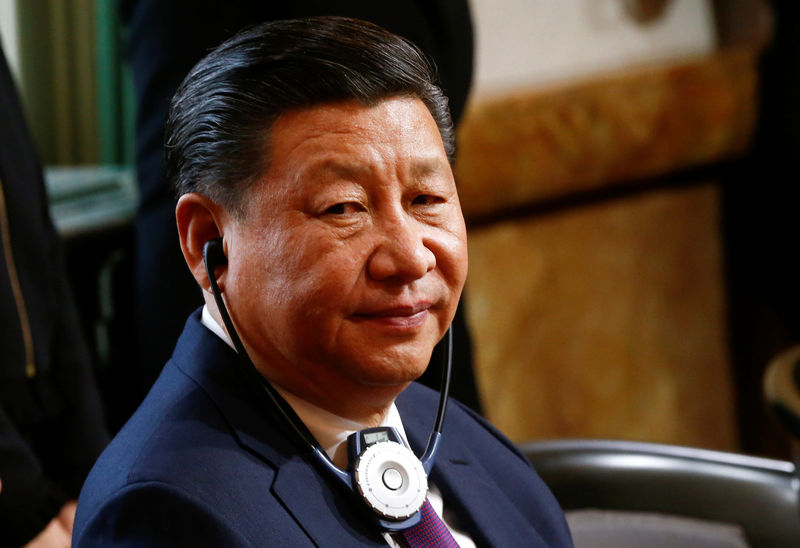BEIJING (Reuters) - Germany's embassy in Beijing on Monday urged China to take action to open its markets to foreign companies to counter rising global protectionism, ahead of Chinese President Xi Jinping's speech at the World Economic Forum in Davos.
Xi is expected to promote "inclusive globalisation" in his keynote address when he becomes the first Chinese president to attend the annual gathering of political leaders, chief executives and celebrities in the Swiss Alps this week.
That message will chime with the tone Xi struck at an Asia-Pacific forum in Peru in November, where leaders vowed to fight protectionism and advance multilateral trade deals days after Donald Trump's U.S. presidential election victory.
Foreign businesses in China, however, have long complained about a lack of market access and restrictive government policies that run counter to Beijing's repeated pledges to continue to free up its markets.
Xi would be the "foremost international leader" at the WEF forum, the German embassy said, adding that the world needed "strong political leadership, strong political signals and, above all, credible action that shows we mean what we say when we talk about further opening".
"The political leadership of China never ceases to assure us that further opening towards foreign investment, a level playing field between German and Chinese companies, as well as protection of intellectual property, is a priority," the embassy said on its website.
"However, many companies keep telling us that their difficulties in these areas have increased," it added. "It often appears that somewhere down the line, political assurances of equal treatment give way to protectionist tendencies."
German firms still face market barriers in China, such as the obligation to enter joint-ventures "mostly with a view to transfer technology to the Chinese partner, the majority of them state-owned enterprises", it said.
Germany is willing to cooperate with China to combat protectionist and populist trends, and would "strongly welcome" a Chinese defence of open markets at Davos, it said.
China's Foreign Ministry spokeswoman Hua Chunying said Xi would use Davos as an opportunity to promote an "objective" view of globalisation to make it more inclusive, besides giving people a better understanding of China's economy.
This year's WEF forum, running from Tuesday until Friday, is expected to be dominated by discussion of public hostility towards globalisation and of Trump, whose tough talk on trade, including promises of tariffs against China and Mexico, helped win him the White House. Trump will be sworn in on Friday.

Germany and China have engaged in an increasingly public dispute over market access, with China complaining about unfair scrutiny of its acquisition targets in Germany, and Germany seeking a more level playing-field for its firms in the world's second-largest economy.